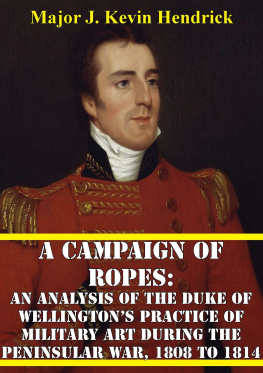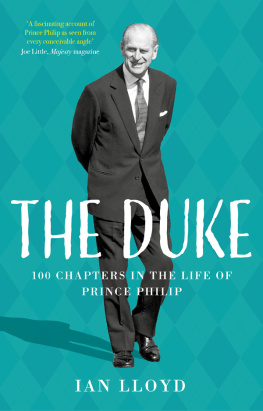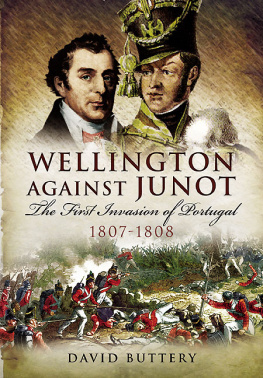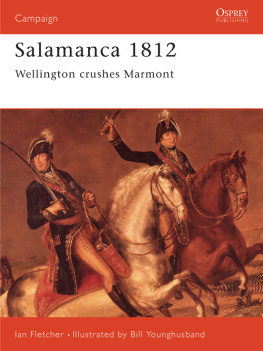PREFACE.
"MY first familiar acquaintance with the Duke of Wel li ngton took its rise from a highly favourable and partial account which he received of a speech which I made against the Reform Bill in the House of Commons, March 22, 1831the second time that I spoke in Parliament.
"After this I saw the Duke not unfrequently, and I had several conversations with him upon politics. I did not, however, take any notes of the Duke's conversations until the close of October, when I met him for some days in Suffolk on a visit to the Marquis of Hertford.
"Subsequently I went to pass some weeks with my grandfather, Lord Carrington, at Deal Castle; and I was then a near neighbour to the Duke at Walmer.
"These notes were in all casesbut once in April 1838written or dictated by me to Lady Mahon either on the same day or at furthest the day after the conversations which they record; and I have never noted anything when not quite sure of remembering it exactly. I can therefore vouch in the most confident manner for the certain accuracy of what I have here set down.
"It was my general wishsubject only to slight exceptions, and on as I thought good groundsto confine these records to what I may call past history, and to omit the Duke's observations on our current affairs or the home politics of the day.
"I find, on reperusing these notes, some stories more than once repeated, as must happen of course in numerous conversations at long intervals of time. I find also some passages or names which it would be right to leave in blank from regard to personal feelings.
"But although in such a case some things might be omitted, there should be nothing changed. These notes the impress of a master-mind upon mineshould stand with all their freshness and distinctness of their original die."
So wrote my father in August 1862. Acting in the spirit of his memorandum, I have felt it right not to alter the text of his records, even where repetition was obvious. But a few notes have been added, giving the references to other publications since my father's time, where some of the recorded stories have been anticipated.
It is I believe quite impossible for any one who reads these records and compares them with the versions told either in the Croker or in the Greville Papers, not to be struck, first with the fact that the main statements of the Duke have never varied, even after the lapse of many years, and secondly, with the fidelity with which both Mr. Croker and my father have evidently recorded his conversations. STANHOPE.
September, 1886.
P.S.The interest excited by these pages, when privately printed and read by a small circle, has induced me to offer the volume to the public, to whom every authentic record of the great Duke must always be welcome.
Table of Contents
SUDBOURN.
Power of the priests in SpainKing Ferdinand and the JuntasLord PeterboroughBattlefieldsMarlborough's advance on ParisDon Juan de HalenJovellanos--TalleyrandThe Bristol RiotsCoining money for the armySoult and St. SimonThe Allies at ParisNapoleon's plan for the defence of ParisMarmontNapoleon's geniusFrench, English, and Spanish soldiersBaylenPalafoxRomana SylveiraSir R. Donkin's message at TalaveraSir John Moore's campaignLord Londonderry in ViennaNapoleon's Parisian campaignHis impatienceCholeraPromotion from the ranksHarangues to SoldiersWhat the English army is composed ofLord Peterborough and the nuns of CuencaDan MackinnonSir J. Whittingham's MarriageCriticisms of NapoleonLignyBlucher and the Pont de Jena
18th October 1831
"THE power of the Priest is immense in Spain, the priest is the resident gentleman of every parish; the Oct bishops reside in towns, where their influence very much exceeds that of the cabildo or civil magistrates.
As to the grandees, [1] they are all at Madrid; none of them according to the ancient system could leave the Court without a special permission from the King. When the Cortes disobliged the clergy during the war, I told them that they must notthat they were weakening my resources. * * *
"Nothing could be more ill-judged than the attempt made through Kolly to effect Ferdinand's escape; had he been in Spain, he would have done all the mischief in the world."
From his character? "Nohis character is not bad; in all that I have seen of him I have had nothing to complain of, and it is impossible for anybody to be going on better than he is nowquite impossible."
But did not the frequent change in the Spanish Government, first local Juntas, then a central Junta, then a Regency, &c., do much harm, which the arrival of the King would have prevented? No; these changes happened when they were either shut up or just going to be shut up in Cadizthey did not affect the country. As to Ferdinand, it is very unfortunate that I should not have seen him in my camp; I could have told him how things really stood and what he ought to do. The French first signed a treaty with himhe sent the Duke of San Carlos with itit was to send all the English away I believe (laughing); but the Cortes would not ratify it, and then the French released him without any treaty at all; but for fear of his meeting me, sent him, not to Bayonne, which was the shortest way, but through Catalonia."
Does your Grace think that he could have gone on with the Constitution and the Cortes? "Impossiblewithout modifications. I don't mean to say that with modifications he might not. But they had gone too farit was quite a Radical Constitutionno second Chamberand only went on at all from the pressure of the war. The people too were not for it; Ferdinand had been proclaimed absolute king Rey neto they call itI think at Burgos and elsewhere before he took any steps to make himself so. Their abolition of the Inquisition was injudiciously done with unnecessary violence; thus, for instance, they drew out a strong statement of all the mischief and cruelty it had caused, and passed a decree that this statement should be regularly read in the Churches on stated days in the year. This they did in 1812. I told them then that they were wrong, and foretold that it would be re-established. It was, two years afterwards. In Portugal they proceeded differently, and it never rose again.
"Lord Peterborough was a very superior man. I don't mean that he was such a man as General Stanhope or the Duke of Marlborough; he was irregular and difficult to deal with, but he was a superior man, well fitted for execution.
"We follow each other very much. The first time I landed in Portugal was at the mouth of the Mondego. From thence we were marching to drive out Junot; we beat them at Rolia and then at Vimiero. But first we came to the convent of Batalha [2] you have seen drawings of it, I dare say, it was built four or five centuries ago; I don't know exactly the date (laughing), but much about the time of our conquest, and intended to record a great battle gained by the Portuguese over a king of Castile at Aljubarrota. [3] Now it so happened that I took up my ground on the very same position that the Spaniards had, and on the very night before the anniversary of the battle; and the monks of the convent, seeing that I had taken the same ground, thought, of course, that I must be defeated too. They passed the whole night in prayer and lamentation. A most uncomfortable night they told me on my return that I had made them pass!"










